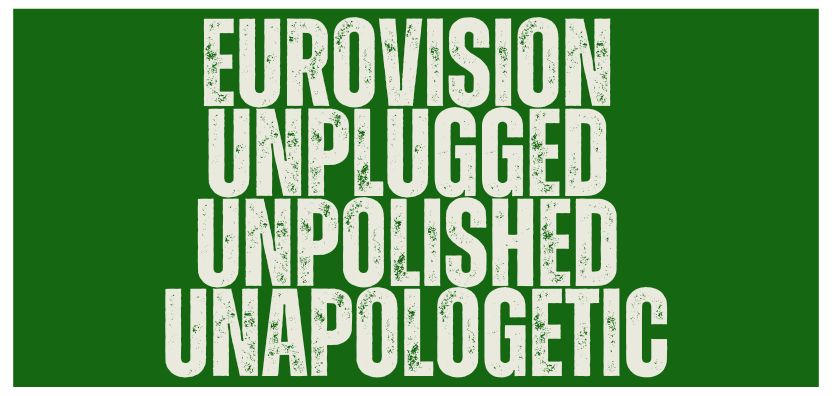
|
Getting your Trinity Audio player ready...
|
For millions of viewers worldwide, the Eurovision Song Contest represents a dazzling celebration of music, performance, and cultural unity. Yet behind the brilliant costumes and choreographed routines, a growing number of artists have revealed a troubling reality: the severe mental health toll that accompanies participation in one of the world’s most-watched musical competitions. As the contest evolves in an era of instant digital judgment and heightened global tensions, the psychological burden on performers has reached unprecedented levels, raising questions about the responsibility of organisers to protect their artists.
The hidden psychological cost of fame
The journey to Eurovision stardom can be as psychologically demanding as it is physically exhausting. For many contestants, the experience might trigger or exacerbate mental health conditions that persist long after their three minutes in the spotlight.
 Nadav Guedj, who represented Israel at Eurovision 2015 with his hit “Golden Boy,” recently broke his silence after a five-year absence from the public eye. In a revealing Jerusalem Post interview, he disclosed his diagnosis with bipolar disorder and described a harrowing “five-year loop, losing perception and distinction between reality and imagination.” His experience included psychosis, involuntary hospitalisations, and what he described as “extreme crisis moments” where his “mind and body physically lose control.”
Nadav Guedj, who represented Israel at Eurovision 2015 with his hit “Golden Boy,” recently broke his silence after a five-year absence from the public eye. In a revealing Jerusalem Post interview, he disclosed his diagnosis with bipolar disorder and described a harrowing “five-year loop, losing perception and distinction between reality and imagination.” His experience included psychosis, involuntary hospitalisations, and what he described as “extreme crisis moments” where his “mind and body physically lose control.”
Norway’s 2016 representative Agnete provides another example. Despite appearing confident and assured on stage, she struggled daily with depression and canceled all pre-contest interviews. Stig Karlsen, head of Norway’s Eurovision delegation, explained: “She’s been open about her bipolarity and health issues because it’s not that common to talk about it.” Paradoxically, while the intense scrutiny of media interviews proved overwhelming, performing for 200 million viewers became her sanctuary. “The stage is her comfort zone,” Karlsen noted. “If she’s in a space where she can be creative and perform and sing – that’s the best place for her to be.”
 These cases aren’t isolated incidents. Ukraine’s Gaitana reportedly fell into depression after her 15th-place finish in 2012, “started smoking weed and stopped making music for years.” The Netherlands’ Joan Franka (2012) claimed in Ducth TV show Better Than Ever, she was mistreated by her management team, cutting her off from family contact during rehearsals and berating her as she came off stage. The experience so tarnished her reputation that she performed under a different stage name for a decade before returning to her original identity.
These cases aren’t isolated incidents. Ukraine’s Gaitana reportedly fell into depression after her 15th-place finish in 2012, “started smoking weed and stopped making music for years.” The Netherlands’ Joan Franka (2012) claimed in Ducth TV show Better Than Ever, she was mistreated by her management team, cutting her off from family contact during rehearsals and berating her as she came off stage. The experience so tarnished her reputation that she performed under a different stage name for a decade before returning to her original identity.
Isaak who performed for Germany in 2014, spoke about the overwhelming stress and lack of agency during the contest, saying, “They drop you in a situation, they’re like, ‘OK, we’re going to do this and that and that.’ They don’t ask you, they just tell you, and then you have to decide. This is a very high stress level.”
After a win for Måneskin win in 2021, lead singer Damiano revealed, “I had to kind of shut down my emotional part in order to be able to hold that pressure,” underscoring the immense psychological demands of the competition.
The amplifying effect of digital scrutiny
While Eurovision has always placed contestants under the spotlight, social media has transformed that spotlight into a scorching examination that follows artists everywhere. The digital age has intensified scrutiny to potentially harmful levels, with artists now subject to instant, unfiltered, and often cruel judgment from global audiences.
Eurovision 2024 was particularly challenging in this regard. “Social media has become a more hateful place over the years,” noted one Reddit user, “and it is naive to think the artists will only get praise and support online. This year, the hate reached a peak.” Replying to that post, another user observed that “the artists became the target, not only to people’s opinions of their songs but to people’s opinion of the contest in general.”
The issue became so severe that in April 2024, Eurovision organisers felt compelled to release a statement condemning the “abuse and harassment of artists over Israel’s participation in the competition” as “unacceptable and totally unfair.” Reports emerged that Israel’s Eden Golan had received death threats via Instagram, leading to enhanced security measures at the venue.
A system under strain: support mechanisms and their limitations
The European Broadcasting Union (EBU) and host broadcasters have begun acknowledging these challenges and implementing supportive measures. For Eurovision 2024 in Malmö, Sweden, a dedicated mental health helpline was established for “volunteers, delegation members, crew, and artists involved with the production.”
This initiative, developed jointly by Swedish broadcaster SVT, the EBU, and the city of Malmö, included an app offering “24/7 support. If you’re struggling with thoughts, feeling stressed, sad or anxious, or struggling to concentrate or unwind, whether it’s work-related, or personal.” Two on-site therapists were also available to assist those in the arena.
Significantly, this support extended beyond the final broadcast, remaining available until May 15th “to help artists deal with the after effects of the competition.” This acknowledgment of post-competition challenges represented an important step forward in addressing the psychological aftermath that can follow such intense experiences.
 Yet questions remain about whether these measures are sufficient. The promotional period leading up to Eurovision places extraordinary demands on artists, with one insider describing April as particularly challenging. “We’re having a big promo tour,” explained Eduard, Moldova’s 2015 representative. “We started in Georgia, then Riga, Tallinn, Amsterdam, London. It’s all travelling, preparation, rehearsals.”
Yet questions remain about whether these measures are sufficient. The promotional period leading up to Eurovision places extraordinary demands on artists, with one insider describing April as particularly challenging. “We’re having a big promo tour,” explained Eduard, Moldova’s 2015 representative. “We started in Georgia, then Riga, Tallinn, Amsterdam, London. It’s all travelling, preparation, rehearsals.”
This gruelling schedule comes at a psychological cost. “Few moments in an artist’s career are as competitive and are therefore as emotionally draining as what Eurovision can be. Burnout can be a common problem,” notes ESC Insight, an independent Eurovision news site.
The call for systematic change
The Eurovision community has begun advocating for more comprehensive protections for artists’ mental wellbeing. Suggestions include tighter rules on behaviour and reduced access from the press to the artists, along with camera-free zones and more time between rehearsals.
Some fans have proposed a “blackout period” with artists shielded from direct social media engagement during the competition itself. Taking control of devices though, might be seen as a step too far in the wrong direction.
What everyone seems to agree on is the need for professional psychological support.
In December 2024, the EBU announced a new Code of Conduct and a comprehensive Duty of Care Protocol for Eurovision 2025. These require all accredited participants to commit to respectful behaviour and outline clear roles and responsibilities for safeguarding artists from unnecessary physical or emotional distress. The Duty of Care Protocol specifically emphasises the shared responsibility of the EBU, host broadcaster, and participating broadcasters to protect artists’ wellbeing. A new Welfare Producer will act as a dedicated point of contact for artists and staff, tasked with providing emotional support, monitoring working conditions, and ensuring a safe, respectful environment.
To reduce stress and provide respite from constant media attention, new “no filming zones” will be established in key artist areas. More rehearsals will be closed to the press and public, and rehearsal schedules are being optimised to ensure artists have adequate rest and time to enjoy the host city, addressing concerns about exhaustion and burnout.
The Duty of Care Protocol encourages participating broadcasters to provide access to professional psychological support before, during, and after the event. The host broadcaster will also offer on-site specialist psychological support. Psychological assessments by qualified professionals may be arranged to help evaluate and mitigate the mental health impacts of participation, especially for younger or less experienced artists.
A broader context: the entertainment industry’s mental health challenge
The challenges facing Eurovision artists reflect broader issues within the entertainment industry. The precarious nature of creative careers contributes significantly to psychological distress.
Research on mental health crises suggests that underlying vulnerabilities, relational dysfunction, and collapse of life structure can precipitate psychological crises. Eurovision’s intense spotlight can potentially exacerbate these conditions, creating a perfect storm of pressure, scrutiny, and uncertainty.
Paradoxically, Eurovision can also serve as a positive force for mental wellbeing. For fans, the contest can provide “energy, focus, excitement and a sense of being alive” and “offer a distraction from issues someone may want to escape.” This therapeutic potential could potentially be harnessed more effectively for contestants as well.
Eurovision’s 2025 mental health measures are among the most comprehensive and formalised in the music competition world, setting new standards for artist welfare. While the broader music industry is making significant strides—especially among major labels and unions—Eurovision’s combination of mandatory protocols, privacy protections, and dedicated support roles marks a more systemic and enforceable approach than is typical elsewhere. However, the effectiveness of these measures will depend on consistent implementation and ongoing feedback from artists and stakeholders.
Moving forward: balancing spectacle with support
As Eurovision evolves, finding the balance between creating captivating entertainment and protecting participants’ wellbeing has become key. While steps like the Malmö mental health helpline represent progress, a more comprehensive approach feels to be needed.
The entertainment industry has increasingly recognised that mental health support isn’t merely compassionate but essential for sustainable success. Major sporting events and reality television productions have begun incorporating psychological professionals into their standard operations, acknowledging that high-pressure performance environments require specialised support.
Eurovision, with its unique combination of national pride, artistic expression, and global scrutiny, presents particular challenges. The stakes for artists extend beyond personal ambition to representing their countries on an international stage—a responsibility that can amplify pressure to potentially harmful levels.
Preserving the magic while protecting the artists
Eurovision’s enduring appeal lies in its celebration of musical diversity and cultural exchange. Preserving this magic requires ensuring that those who create it are protected from its potential harms.
As one fan poignantly observed: “I thought that we’re here to celebrate our love for music.” Achieving this celebration sustainably means acknowledging the mental health challenges inherent in the Eurovision experience and developing robust systems to address them.
The spotlight on Eurovision’s mental health impact doesn’t diminish the contest’s significance but rather underscores the responsibility that comes with its global platform. By confronting these challenges openly, the Eurovision Song Contest has an opportunity to lead the entertainment industry in creating environments where artists can shine brilliantly without burning out.
For the millions who cherish Eurovision’s spectacle, ensuring the wellbeing of those who create it represents the truest expression of the contest’s values of unity, diversity, and celebration. Behind every dazzling performance lies a human being, and their psychological health deserves protection as vigilant as the spotlights that follow them across the stage.





